
If you’re plagued by bloating and gas, you might be tempted to reach for the Tums. But there’s a better way: eat less refined sugar and processed foods, which can cause an imbalance in gut bacteria that leads to gas. Instead, try eating more fermented foods—and particularly ones with live cultures like yogurt or kimchi. These foods help your body break down food more efficiently and decrease your risk of digestive issues like IBS and constipation.
What is a fermented food?
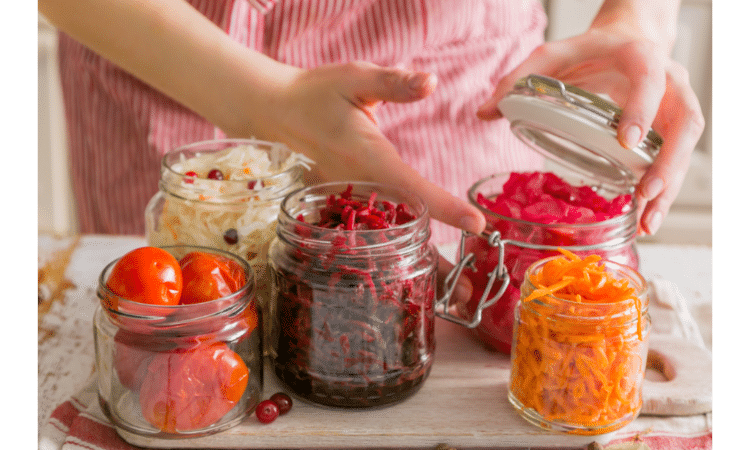
- Fermented foods are foods that have been allowed to sit for a period of time.
- Fermentation is a process that uses bacteria and yeast to break down meals, resulting in the production of lactic acid and other chemicals.
- The fermentation process preserves meals, making it last longer than non-fermented products.
- Some common fermented foods include yogurt, kimchi (a spicy Korean dish), sauerkraut (pickled cabbage), and olives.
Yogurt
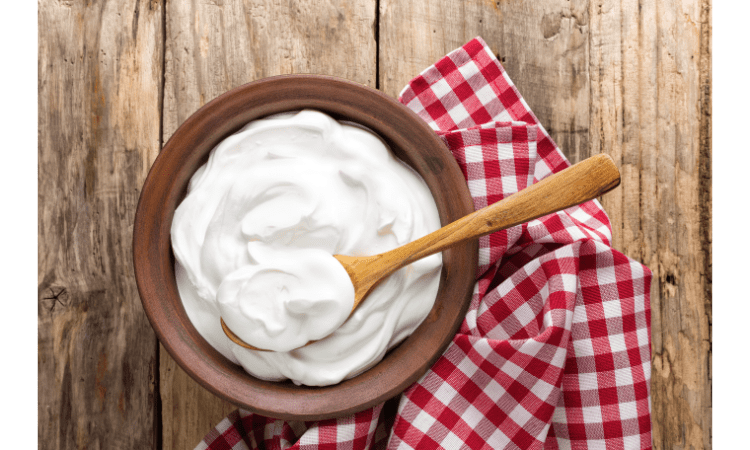
Yogurt is a dairy product. It’s made by adding bacteria to milk and allowing it to brew for several hours (or even days) until the desired flavor and texture have been reached. The word “yogurt” comes from the Turkish word meaning “to thicken”, which gives you an idea of what happens during fermentation: yogurt thickens as its lactose turns into lactic acid.
Yogurt is often associated with probiotics—good bacteria that help your digestive system stay healthy and promote healthy digestion and also get rid of lower belly bloat. Probiotics can help reduce bloating by helping you digest meal better.
Kimchi
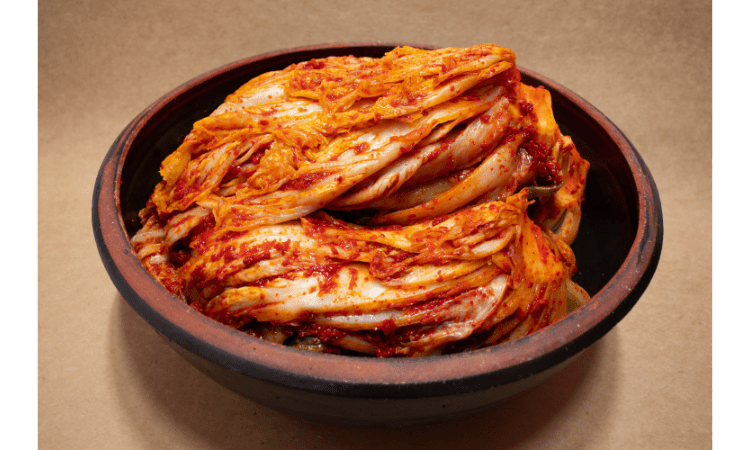
If you’re looking for an all-natural way to reduce bloating and improve your health, consider adding kimchi to your diet. Kimchi, a staple meal in Korea that can be traced back as far as the 14th century, is made by brewing vegetables with salt and lactic acid bacteria. It’s rich in vitamins C and B, as well as antioxidants like glutathione (a powerful anti-cancer compound). The fermentation process also makes it more digestible than raw vegetables while boosting its probiotic content.
One study published in Food Science & Nutrition found that regular consumption of kimchi was associated with lower body mass index (BMI) and waist circumference over time compared to those who ate less regularly or not at all. Another study showed that people who consumed fermented cabbage had lower levels of several biomarkers linked to diabetes risk compared to those who did not eat fermented cabbage on a regular basis.
Kombucha helps a bloated stomach go down

Kombucha is a fermented tea that’s made by adding a yeast culture to sweetened tea. It can be made from black or green tea, though it’s most commonly produced with black tea. The fermentation process produces enzymes that aid in digestion and control bloating.
Kombucha is often flavored with fruit juices, which add more probiotics and help promote healthy bacteria growth in the gut. If you’re not a fan of the sour taste (which may take some getting used to), kombucha can also be drunk dry—just make sure the sugar content is low enough so you don’t trigger cravings for more sweets.
Kefir
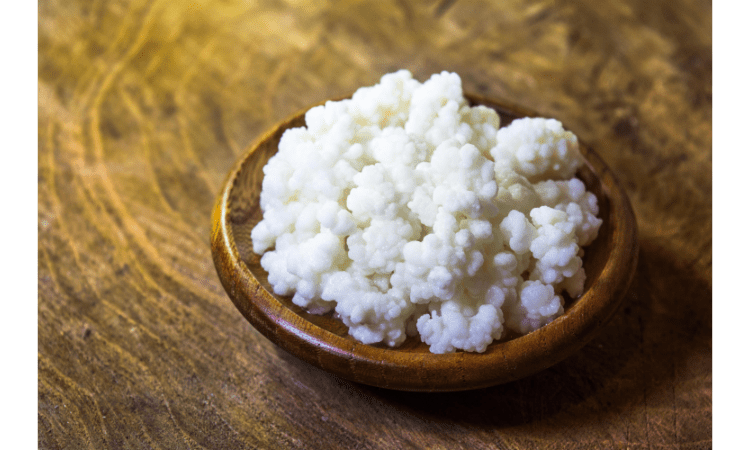
Kefir is a fermented milk product, which means it’s been intentionally introduced to active cultures (specific microorganisms) and allowed to ferment for several days. When you drink kefir, you’re consuming a probiotic-rich product that’s excellent for your gut health.
Kefir can be used as a substitute for yogurt because of its tart flavor and creamy texture. It’s also rich in calcium and vitamin B—both important nutrients for keeping your bones strong and healthy. And if you’re looking for more digestive benefits from your meal, kefir is an excellent source of these too. It helps prevent bloating, gas buildup, and constipation due to its high amount of beneficial bacteria that break down lactose into simpler sugars that are easier on the stomach during digestion.
Sauerkraut

Sauerkraut is a fermented cabbage dish that has been used for centuries to treat digestive disorders or bloated stomachs. It contains probiotics so it’s a vital source of probiotics, which are important for the gut and aid in digestion by promoting healthy bacteria (the yeast Candida albicans) in your gastrointestinal tract. This process can help reduce gas, bloating, and constipation.
The fermentation process causes the cabbage’s natural sugars to feed the bacteria, allowing it to multiply as it breaks down into lactic acid. The result is an acidic environment that kills harmful bacteria and helps prevent diarrhea caused by E. coli or salmonella poisoning – two common pathogens found in improperly handled raw foods such as meat or vegetables.
Miso
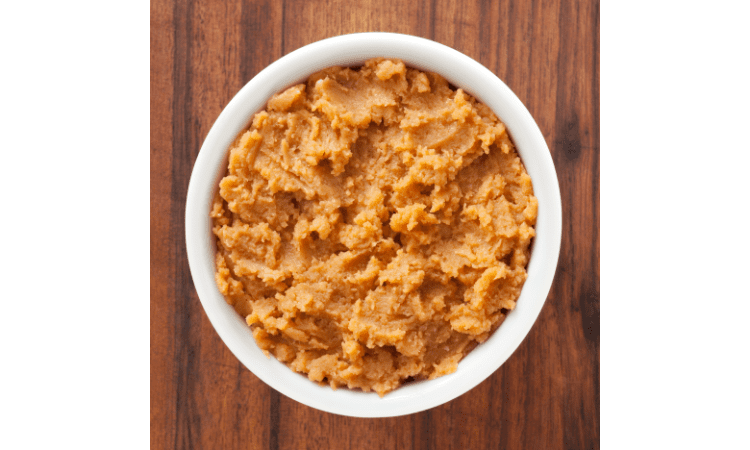
Miso is a Japanese fermented soybean paste that has been used for over 1,000 years to reduce bloat and also reduce inflammation. It has a salty and savory flavor that makes it a great ingredient for soups, stews, and sauces.
Miso contains live bacteria (probiotics) and yeasts that help with digestion by reducing bloating in the stomach, which may cause abdominal pain or discomfort. Eating miso regularly can reduce bloating caused by gas or constipation because it helps restore healthy microflora in your gut.
Conclusion
In conclusion, it’s important to note that the best fermented foods for bloating are those that have probiotic properties. Probiotics help balance your gut microbiome and improve digestion by increasing the number of good bacteria in your body. They also fight off harmful pathogens that might be causing your bloating. If you want to try these remedies out, start with a small amount of meal at first so that you don’t get overwhelmed by too much probiotic power.











